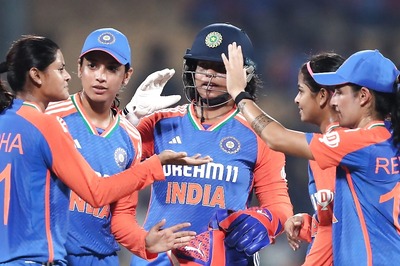
views
A break-up does not amount to abetment of suicide, a charge that carries a stiff 10-year sentence and is perhaps the most difficult charge to prove unless there is clinching evidence – this has been exposed yet again in the Jiah Khan case in which actor Sooraj Pancholi has been acquitted of the charge after nearly a decade.
Pancholi’s lawyer was at pains to explain after the verdict that mental health is a serious concern and one single incident can’t be proved as the reason for a suicide and the Central Bureau of Investigation (CBI) should have looked at the entire life events of Khan.
A break-up can’t be termed abetment to suicide unless a person actively instigated the other for the act, multiple Supreme Court judgments have laid out in the context of Section 306 of the Indian Penal code (IPC).
#Exclusive: Jiah Khan's mother Rabia Khan spoke exclusively with CNN-News18's @vinivdvc after verdict was announced; she said that "it's a murder case, will approach higher court for justice"Join the broadcast with @ridhimb | #JiahKhan #SoorajPancholi #Bollywood pic.twitter.com/ttORARu2Fs
— News18 (@CNNnews18) April 28, 2023
This has also been highlighted in two other major cases of alleged deaths by suicide, that of actors Sushant Singh and Tunisha Sharma in which investigators charged actors Rhea Chakraborty and Sheezan Khan, respectively under Section 306. Both Rhea and Sheezan are on bail.
In the Jiah Khan case, the late actress had left a suicide note detailing her break-up with Pancholi and an abortion as a reason for her distress. That led to the CBI charge against Pancholi under Section 306.
In the Sushant and Tunisha cases, there was no suicide note, but charges under Section 306 were brought on the complaint from their respective families. Khan’s mother Rabia has, in fact, not been in agreement with the abetment charge that the CBI had brought against Pancholi, and has been alleging that her daughter was murdered, although she was found hanging in her flat.
Rabia on Friday said she will go before a higher court to place evidence that Khan was murdered and the CBI has been on the wrong path.
SECTION 306 NEEDS IRREFUTABLE PROOF
Section 306 is a very difficult charge to prove in court unless there is irrefutable and concrete evidence. The figures bear testimony. As per the National Crime Records Bureau (NCRB) report for 2021, there was only a 22.6% conviction rate under this offence and 8,312 cases under Section 306 were lodged last year.
The NCRB report also says that nearly 7,500 suicides were reported in India last year due to reasons of “love affairs”. The Supreme Court and various High Courts have repeatedly weighed in on such cases, citing the need for concrete proof to prove abetment to suicide. Except for cases of suicides due to dowry demands in marriage, it has proven difficult to achieve convictions here, the figures show.
The SC has clearly said that “the person who is said to have abetted the commission of suicide must have played an active role by an act of instigation or by doing certain act to facilitate the commission of suicide”. The court further has defined instigation as “to goad, urge forward, provoke, incite or encourage to do an act”. The apex court has also impressed upon the need for scrupulous assessment of the evidence in order to find out whether the cruelty and harassment meted out to the victim had left the victim with no other alternative but to put an end to her life.
“Merely on the allegation of harassment without there being any positive action proximate to the time of occurrence on the part of the accused which led or compelled the person to commit suicide, conviction in terms of Section 306 is not sustainable,” the SC said in a judgment in 2010. The essence of court observations in Section 306 cases has been that aborted love affairs can’t be construed as abetment to suicide charges.
Sooraj Pancholi gets big relief as the actor has been acquitted in Jiah Khan death case due to lack of evidence. Latest Updates: https://t.co/tcO1O2J64B#Jiahkhan #JiahkhanVerdict #bollywood pic.twitter.com/549bozrPJM
— News18 (@CNNnews18) April 28, 2023
Last year, the SC discharged a person from Section 306 charges after a girl took her own life following the allegation that he did not marry her following a love affair.
“Every person has a right to choose his better half for his life according to his wish and nobody can compel him/her to do things against his/her wishes. It seems that deceased was hyper sensitive girl and, therefore, she could not control her emotions, which she was having at the relevant point of time and took such an extreme step to end her life by committing suicide,” the SC observed in its judgment.
The apex court had underlined yet again that it needed to be proved that a person had harassed the deceased or played any direct or indirect act or instigation, as a consequence of which, the deceased was compelled to take the suicide route.
Read all the Latest Movies News and Entertainment News here



















Comments
0 comment